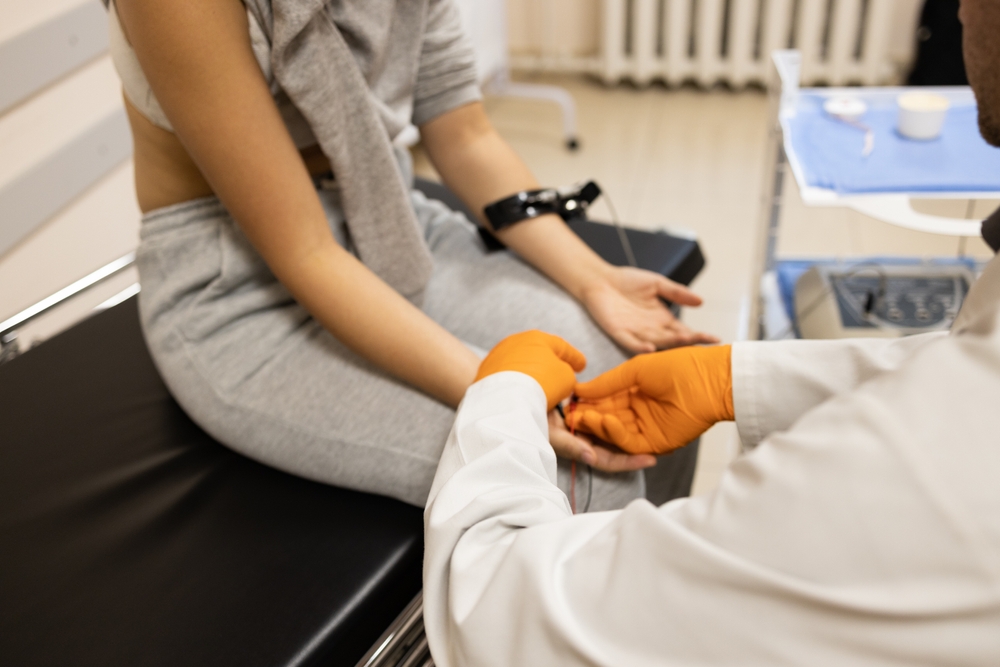If you’re experiencing nerve pain, muscle weakness, numbness, or tingling, your Iowa Ortho provider may recommend an EMG (Electromyography) and/or NCS (Nerve Conduction Study) to help diagnose the cause. These specialized tests assess the health of your muscles and nerves and are often used together to give a full picture of how your nervous system is functioning.
What Is an EMG (Electromyography)?
An EMG evaluates how your muscles respond to nerve signals. A small, thin needle (called an electrode) is inserted into the muscle to measure electrical activity when the muscle is at rest and during movement.
This test helps detect:
- Muscle disorders
- Nerve dysfunction
- Conditions like carpal tunnel syndrome, sciatica, or neuropathy
What Is an NCS (Nerve Conduction Study)?
An NCS measures how quickly electrical signals move through your nerves. Small, sticky electrodes are placed on the skin over specific nerves, and a mild electrical impulse is applied. This test evaluates the speed and strength of nerve signal transmission.
It’s especially useful in diagnosing:
- Nerve compression (e.g., carpal tunnel syndrome)
- Nerve damage or injury
- Peripheral neuropathy
Why Might You Need an EMG or NCS?
Your provider may recommend EMG/NCS testing if you’re experiencing:
- Persistent numbness or tingling
- Muscle weakness or cramping
- Radiating pain from the spine to the limbs
- Unexplained muscle loss or fatigue
These tests help pinpoint the source of your symptoms and guide the best treatment plan for your condition.
Are the Tests Painful?
Most patients tolerate EMG and NCS procedures well. While the EMG may cause brief discomfort due to the small needle electrode, and the NCS may produce a mild tingling or tapping sensation, neither test is considered painful. The procedures are non-invasive or minimally invasive, safe, and typically completed within an hour.
How to Prepare for Your Appointment
To ensure accurate results:
- Do not apply lotions or oils to your skin on the day of your test
- Wear loose, comfortable clothing
- Inform your provider if you are on blood thinners or have a pacemaker
What Happens After the Test?
After your EMG/NCS, the results will be reviewed by a trained specialist at Iowa Ortho. Your provider will then explain the findings and discuss treatment options tailored to your diagnosis, whether that involves physical therapy, medication, surgery, or another approach.
Expert Neuromuscular Testing, All in One Place
At Iowa Ortho, we provide in-house EMG and NCS procedures so you can receive a diagnosis and care plan from a team that knows your history, without needing to visit an outside imaging center. Our goal is to make the process convenient, accurate, and efficient.

